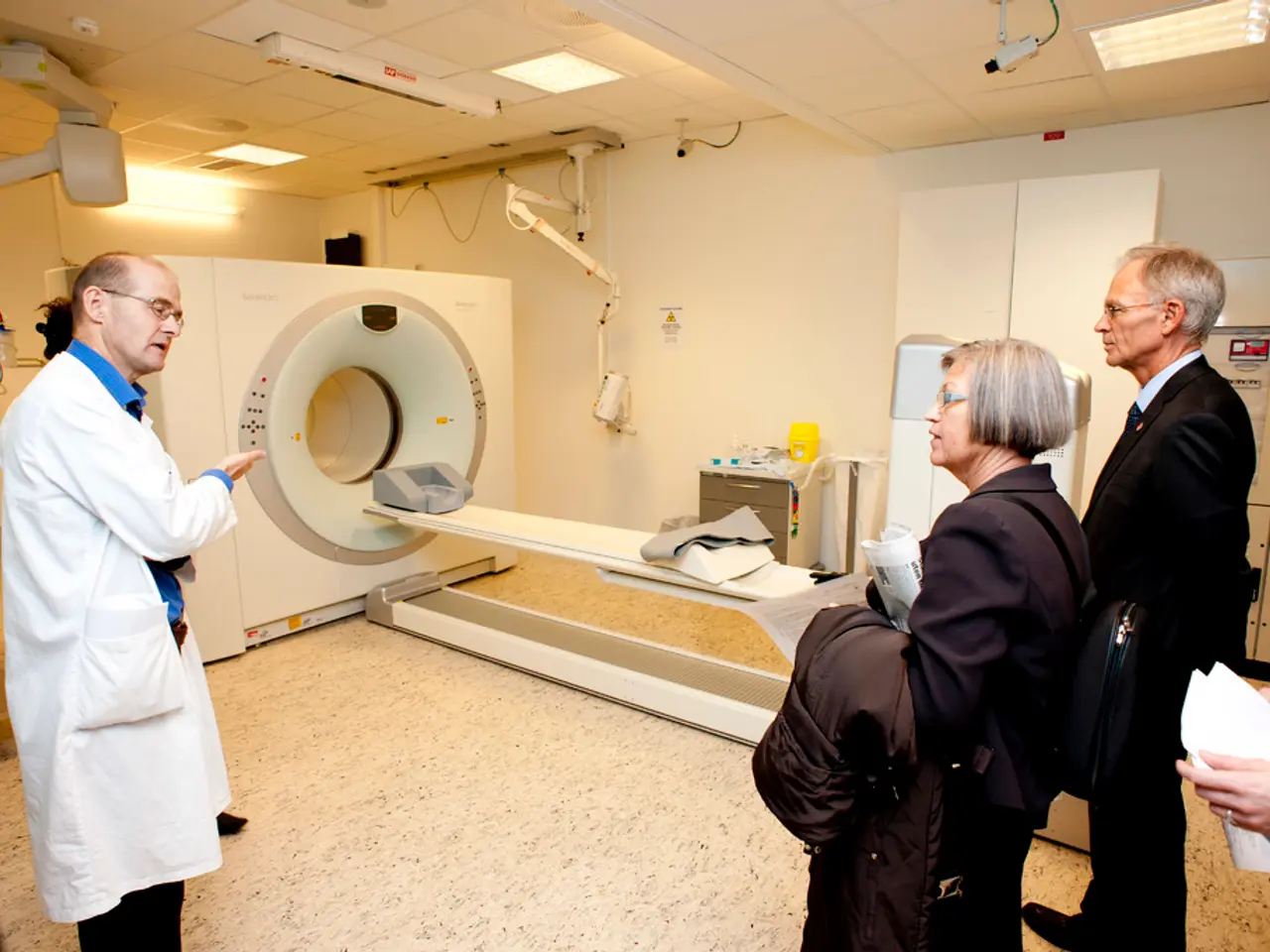New technology in radiation therapy at OncoRay Dresden
Dresden, a city renowned for its commitment to medical innovation and cancer research, has taken another significant step forward. The OncoRay National Center for Radiation Research in Oncology, a joint venture between HZDR, TU Dresden's Medical Faculty, and University Hospital Carl Gustav Carus, has acquired the world's first single-source photon-counting computed tomograph (PCCT) for radiation therapy.
This cutting-edge technology, set to be installed in the coming weeks and clinically available from mid-July, will revolutionise the field of medical imaging. It will enable much more detailed, anatomically and functionally rich images than previous CT systems, paving the way for better and more accurate diagnoses.
The new PCCT device will not only improve the quality of images but also allow for even more precise planning of radiation treatment. This could potentially be done with less imaging dose than before, reducing the radiation dose for patients.
The implementation of this new technology underscores Dresden's commitment to interdisciplinary collaboration in the field of medical innovation and cancer research. It reinforces the city's position as an international hub for such advancements, demonstrating its dedication to advancing cancer treatment.
The funding for the new PCCT device came from the Federal Ministry of Research, Technology, and Space, indicating government support for Dresden's medical innovation initiatives. The close collaboration between HZDR, TU Dresden, and University Hospital Carl Gustav Carus is evident in the acquisition and implementation of the new PCCT technology.
The new PCCT device opens up the possibility of treating moving tumours, such as those in the lung or liver, with the highly precise DirectSPR method. This could significantly improve the effectiveness of radiotherapy for these types of cancers.
OncoRay serves as a notable example of the strong interconnection between science, economy, and clinical application in Dresden. The acquisition and installation of the new PCCT device further solidifies Dresden's reputation in the field of medical innovation and cancer research. The city's ongoing efforts to foster partnerships between academic institutions, the economy, and the clinical sector are evident in this acquisition.
With the arrival of the world's first single-source PCCT device, Dresden continues to lead the way in medical innovation and cancer research, further cementing its status as a global hub for such advancements.
Read also:
- Nightly sweat episodes linked to GERD: Crucial insights explained
- Antitussives: List of Examples, Functions, Adverse Reactions, and Additional Details
- Asthma Diagnosis: Exploring FeNO Tests and Related Treatments
- Unfortunate Financial Disarray for a Family from California After an Expensive Emergency Room Visit with Their Burned Infant








